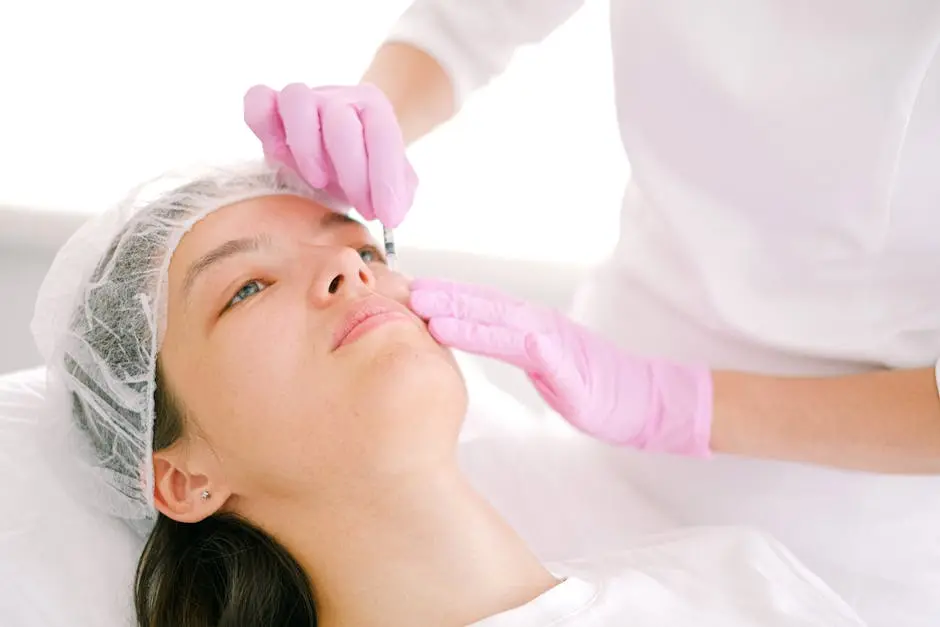Our Blog
7 Must-Know Cyst Treatment Options to Consider
March 22, 2025
Cysts can often cause discomfort and confusion, leaving many individuals wondering what treatment options are available. In this article, we’ll explore seven essential cyst treatment options that can help you manage and address these concerns effectively.
1. Understanding Cysts and Their Causes
Before diving into treatment options, it’s important to understand what cysts are and what causes them. Cysts can form due to infections, clogged glands, or even abnormal cell growth. This section will help clarify these aspects.
Cysts are typically benign, meaning they’re not usually harmful, but they can cause discomfort or complications depending on their size and location. Understanding the root causes can help you take a proactive approach to treatment. For example, those caused by blocked glands might require different interventions than those resulting from infections.
It’s also worth noting that genetics can play a role in cyst development. If you have a family history of cysts, you may be more prone to developing them yourself. Being aware of your personal and family medical history can help you discuss your condition with a healthcare provider more effectively.
2. Home Remedies You Can Try
For those looking for natural approaches, home remedies can sometimes alleviate discomfort. From warm compresses to essential oils, this section discusses various DIY methods to manage cyst symptoms.
Applying a warm compress several times a day can help with discomfort and may even encourage a cyst to drain on its own. Other natural remedies, like tea tree oil, possess antimicrobial properties and might help in reducing inflammation. However, it’s important to apply these substances with care and monitor any changes closely.
Additionally, increasing your water intake can help flush out toxins and keep your body functioning optimally, potentially diminishing future cyst risks. Ever thought about incorporating turmeric into your diet? This spice is known for its anti-inflammatory properties and could play a role in maintaining skin health, which is essential for those prone to cysts.
3. Over-the-Counter Treatments to Consider
Many over-the-counter options are available that can help ease inflammation and pain. This section reviews common OTC treatments and how they may benefit you.
Pain relievers, such as ibuprofen or acetaminophen, can be quite effective in managing discomfort associated with cysts. Topical creams that contain ingredients like hydrocortisone may help reduce swelling and irritation. When using these products, it’s wise to read labels carefully and follow dosage instructions for safe and effective use.
Another option you might consider is salicylic acid, often found in acne treatments. This ingredient helps to exfoliate the skin, keeping pores clear and potentially reducing the chances of cyst formation. Remember that while these treatments can be helpful, they may not completely resolve the underlying issue—consulting a healthcare professional for persistent cysts is always advisable.
4. When to Consult a Healthcare Professional
Recognizing when it’s time to seek professional advice is crucial. This section outlines signs that indicate a cyst may require medical intervention.
If a cyst becomes red, swollen, or painful, it’s a clear signal that something might be wrong, and you shouldn’t hesitate to reach out to a healthcare provider. Additionally, if you experience sudden changes in size or feel discomfort that disrupts your daily activities, it’s wise not to ignore these symptoms.
A healthcare professional can also offer insights into the type of cyst you might be dealing with, as some require different treatment strategies. Don’t forget that early intervention can often prevent more serious complications down the line, making it essential to stay attentive to any changes.
5. Medical Procedures for Cyst Removal
In some cases, cysts may need to be surgically removed. This section provides an overview of common procedures and what to expect during recovery.
The most common procedure is an excision, where the healthcare provider surgically removes the cyst. While this is often effective, understanding what to expect during recovery is vital. Typically, the area may be sore for a few days, and following your provider’s post-operative care instructions is crucial for proper healing.
Lancing a cyst is another procedure that may be performed. This involves making a small incision to drain the cyst’s contents. It’s a quicker procedure and recovery can be swifter, but again, monitoring for any signs of infection post-procedure is essential. Your healthcare provider will guide you on signs to watch for.
6. Alternative Therapies to Explore
From acupuncture to herbal treatments, alternative therapies can complement traditional methods. This section explores various holistic approaches to cyst management.
Acupuncture, for instance, aims to balance the body’s energy flow and may help reduce inflammation. While scientific research is still catching up, many people report positive experiences. Herbal treatments, like witch hazel or calendula, possess soothing properties and can be applied topically for relief.
Exploring these alternative therapies may provide additional relief and promote overall well-being. However, it’s always best to discuss these options with a healthcare provider to ensure they align with your treatment plan.
7. Preventative Measures for Future Cysts
Prevention is often the best treatment. This section offers tips on lifestyle and dietary changes that may help reduce the likelihood of recurring cysts.
Maintaining a balanced diet rich in vitamins and antioxidants can help promote skin health, potentially reducing cyst occurrences. Look for foods high in omega-3 fatty acids, like salmon, which may help reduce inflammation. Staying hydrated is equally important, ensuring your body functions optimally.
Incorporating regular exercise into your routine not only benefits your overall health but also aids in reducing stress, which can be a contributing factor to cyst formation. By taking proactive steps in your lifestyle, you can lower the chances of future cysts developing.
